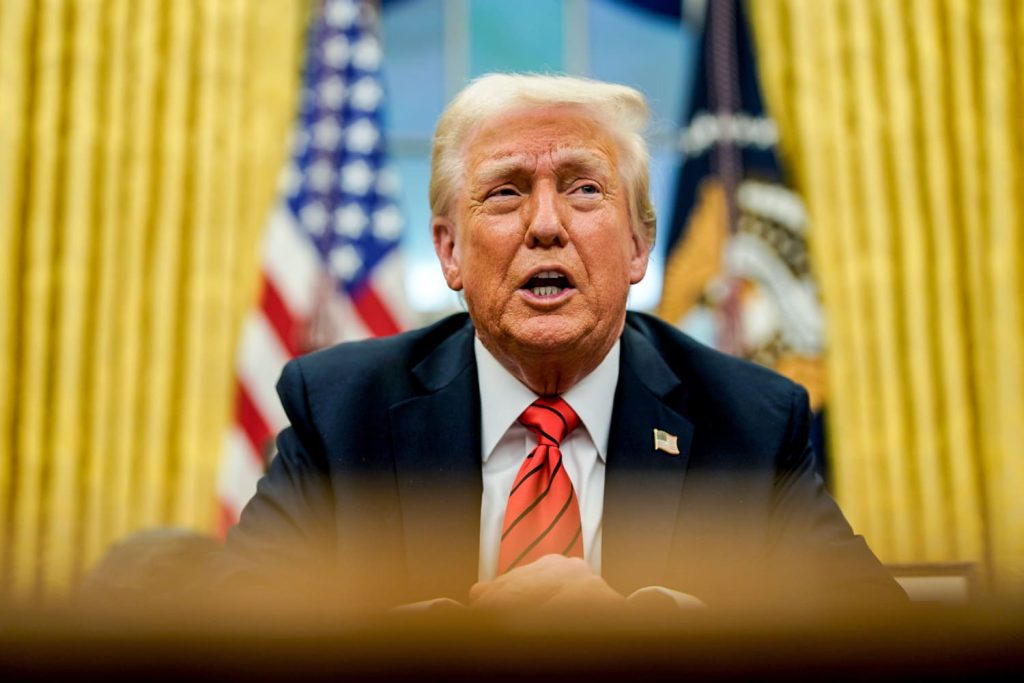“White House Summit: Trump Ends USAID, Embraces African Trade Deals”
President Donald Trump welcomed the leaders of Liberia, Senegal, Gabon, Mauritania, and Guinea-Bissau to the White House for a working lunch aimed at transforming U.S.–Africa relations by prioritizing trade and investment over traditional aid.
Strategic Shift: From Charity to Commerce
Trump announced the dissolution of USAID, describing the move as a necessary step to “eliminate waste, fraud, and abuse.” He emphasized that future U.S. engagement would focus on “partnerships with nations that show both the ability and willingness to help themselves”
His message: “There’s great economic potential in Africa… in many ways, this will be far more effective and sustainable than anything else we could be doing together”.
Unlocking Africa’s Resource Wealth
Each leader highlighted their country’s untapped resources:
Mauritania’s President Mohamed Ould Ghazouani cited rare earths, manganese, uranium, and lithium as key investment opportunities
Gabon’s President Brice Oligui Nguema noted that while his country is resource-rich, it needs capital to develop local processing capacity for minerals
Concrete Investment: Gabon Potash Deal
The U.S. International Development Finance Corporation (DFC) pledged support for the Banio Potash Mine in Gabon—a signal of intent to foster economic self-reliance
Diplomacy Through Trade
Trump praised Africa’s rich land, minerals, and oil deposits, linking commercial engagement to peacebuilding. He pointed to the recent U.S.-brokered peace deal between Rwanda and the Democratic Republic of Congo, which he helped facilitate.
Concerns Over Aid Cuts
Critics warn that ending USAID—and cutting foreign aid—could have dire consequences. A Lancet study forecasts over 14 million additional deaths globally by 2030 if aid reductions persist. In Liberia, where U.S. aid accounted for about 2.6% of GDP, the impact is especially concerning.
Awkward Moment: Language Commentary
During the event, Trump awkwardly praised Liberian President Joseph Boakai for his “beautiful English,” unaware that English is Liberia’s official language. Boakai, visibly amused, replied, “Yes, sir.
